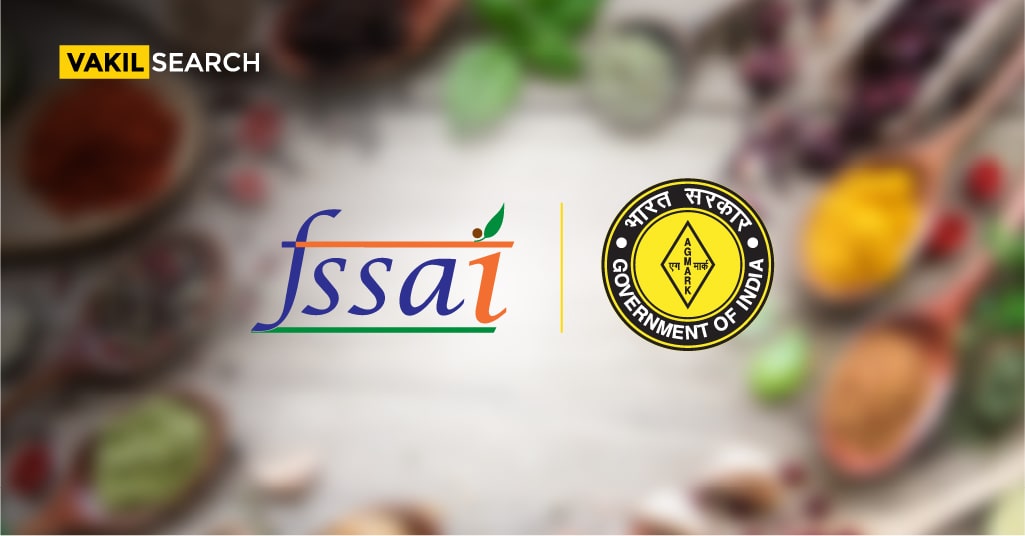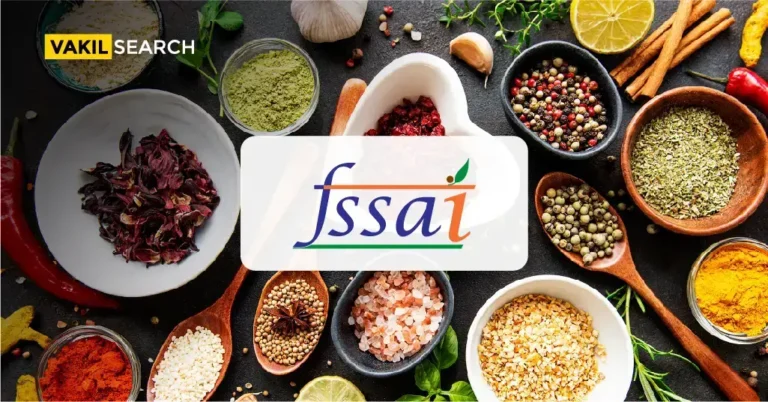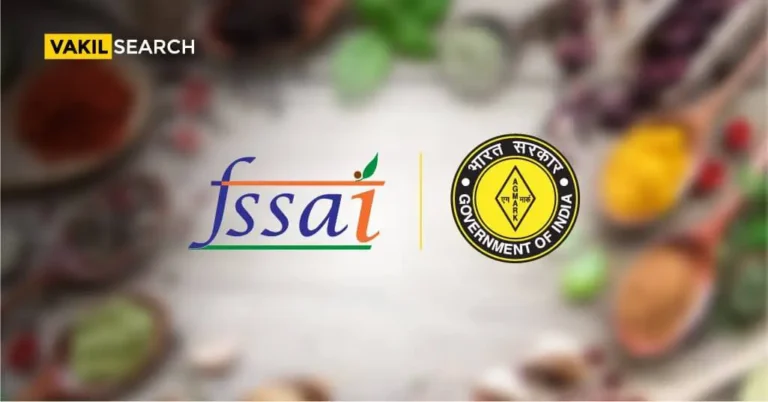Understand AGMARK's impact on food products, uncovering the list in India. Differentiate AGMARK and FSSAI standards for a nuanced understanding.
Products across industries are certified as per quality standards. There are acts such as the Food Safety and Standards Act of 2006, among others, regarding licencing food products. These ensure that we consume quality products that are free from adulteration. The latest standards that deal with food products are FSSAI and AGMARK. In this article, you will understand the difference between the two food licencing standards.
A separate act has always governed the manufacture and distribution of a product in India. Some examples include the Vegetable Oil Products Order of 1947 and the Milk Products Order of 1992. Several other products were added to this list, making it challenging for people to keep track.
The changing environment in the country led to several changes in food safety laws, and translating them into every act took much time, resources, and effort. The Food Safety and Standards Act of 2006 was the solution that brought under one roof all previous acts that dealt with food products. This consolidation made it a lot easier for people to keep tabs on these laws and ensure that the standard of food products does not drop within the country.
What is FSSAI?
FSSAI stands for the Food Safety and Standards Authority of India, which serves as an independent government authority that was created in 2008 as per regulations laid down in the Food Safety and Standards Act of 2006.
The main aim of this organization is to regulate and monitor the quality of the food business in India to ensure the safety of food consumed within the country. It certifies and provides a base or standard which covers all food items and makes sure that these items are hygienic and safe for consumption.
The fssai food license works the same way a checkpoint does to make sure the food is safe to eat. Every business related to food or food processing such as cold storage, manufacturing, distribution, and even packaging, must comply with the FSSAI guidelines and have a valid FSSAI license to function in India.
Functions of FSSAI
Frame rules that help lay down food safety standards and ensure those standards are met.
- Plot guidelines for certifying bodies and manage this certification system
- Create policies that outline the certification of laboratories to test food
- Provide advice and technical support to the government in matters regarding food safety laws
- Collect data concerning food consumption, health hazards, contaminants, and imminent biological threats
- Create a system that supplies people with information about these risks
- Provide training for people involved in the food business
- Promote awareness about food safety.
What is AGMARK?
AGMARK is a quality certificate that labels a product pure and of necessary quality as per guidelines specified by a governing body.
It acts as a third-party guarantee for agricultural products consumed in India. The quality of an agricultural commodity is based on its intrinsic merit, and these standards are devised keeping in mind International laws and specifications so that we comply with the WTO requirements.
AGMARK Eligible Products
- Pulses
- Whole spices
- Vegetable oils
- Wheat products
- Milk products
- Honey
- Rice
- Tapioca sago
- Seedless tamarind
- Besan (gram flour).
FSSAI Vs Agmark: What’s the Difference?
- The primary difference between the FSSAI and AGMARK is that AGMARK works as a certification while FSSAI is a government agency that works on food control. AGMARK works exclusively for agricultural products whereas FSSAI licensing covers almost every food item, whether it is of agrarian origin or not. It covers all processes of food processing, from manufacturing to packaging
- FSSAI was a direct result of the Food Safety and Standard Act, 2006, while AGMARK comes under the Agriculture Produce (Grading and Marketing) Act of India, 1937
- AGMARK certification deals with chemicals, microbiological experiments, pesticide residue, and aflatoxin levels. AGMARK is given only for the product and not for an individual farmer. As of now, 213 agricultural products come under AGMARK certification. FSSAI License is allotted for individual establishments. Every branch of a fast-food restaurant chain requires an FSSAI licence, even if all branches come under one franchise. FSSAI has three types of licences: basic, state and central.
- AGMARK is approved by the directorate of marketing and inspection which falls under the Department of Agriculture. FSSAI is a government authority of its own.
What Is the Difference Between FSSAI and AGMARK?
Difference Between FSSAI Registration and AGMARK:
| Criteria | FSSAI Registration | AGMARK Certification |
| Regulating Authority | Regulated by the Food Safety and Standards Authority of India (FSSAI). | Regulated by the Agricultural and Processed Food Products Export Development Authority (APEDA). |
| Scope | Focuses on ensuring food safety standards, quality, and regulations. | Primarily concerned with certifying agricultural and processed food products. |
| Applicability | Mandatory for all food business operators in India, including manufacturers, distributors, and retailers. | Voluntary for agricultural and processed food product manufacturers aiming to export their products. |
| Certification Type | Involves obtaining a license from FSSAI based on the scale and type of food business. | Involves obtaining a quality certification for agricultural and processed food products. |
| Validity Period | Validity varies based on the type of FSSAI license (ranging from 1 to 5 years). | Generally, AGMARK certification is valid for a specific batch or consignment. |
| Focus Area | Ensures food safety, hygiene, and adherence to quality standards in the food industry. | Certifies the quality and adherence to standards of agricultural and processed food products. |
Understanding the Concept of FSSAI License & AGMARK Certification:
FSSAI Licence:
The FSSAI license is a mandatory requirement for entities involved in the food business in India. It is issued by the Food Safety and Standards Authority of India (FSSAI) and is essential to ensure that food products meet regulatory standards regarding safety, quality, and hygiene. The license type varies based on the scale and nature of the food business, ranging from basic registration to state and central licenses.
AGMARK Certification:
AGMARK certification, overseen by the Agricultural and Processed Food Products Export Development Authority (APEDA), focuses on certifying the quality and adherence to standards of agricultural and processed food products. While FSSAI ensures overall food safety, AGMARK certification specifically addresses the export-oriented needs of agricultural products, giving assurance to international buyers regarding quality.
Importance of AGMARK Registration:
AGMARK registration holds immense significance for manufacturers in the agricultural and processed food industry with aspirations for international trade. This certification serves as a recognized endorsement of the product’s quality, playing a pivotal role in instilling confidence within global markets. The AGMARK symbol becomes a valuable mark of conformity to rigorous standards, enhancing the marketability and acceptability of the products. This not only ensures compliance with international quality benchmarks but also streamlines trade processes, fostering a smoother and more seamless experience for exporters in the agricultural and processed food sector. Ultimately, AGMARK registration becomes a powerful tool for businesses looking to establish a reputable presence in the international marketplace.
Importance of FSSAI Registration:
FSSAI registration is vital for all entities involved in the food business within India. It ensures that food products circulating in the domestic market meet established safety and quality standards. FSSAI registration not only legalizes food businesses but also promotes consumer trust by assuring them of the safety and quality of the products they consume.
Understanding the distinctions and significance of FSSAI registration and AGMARK certification helps businesses navigate the regulatory landscape, ensuring compliance with the specific requirements of both national and international markets.
Conclusion:-
In India, there is no shortage of certifications. There are many Acts which are legally binding on the business owners, some of the major ones related to food are FoSCos FSSAI and AGMARK.
We can’t undermine the importance of food laws, they handle one of the most important sectors – health and hygiene. But, government institutions should ensure the effective implementation of laws. From here, you would have got to know that both these standards are to assure good health and hygiene.
Vakilsearch offers a complete food licence and FSSAI registration solution. Our guiding idea at Vakilsearch is to ensure that your food business starts as soon as possible and as smoothly as possible. To learn more, speak with one of our experts now!
Also, Read:










